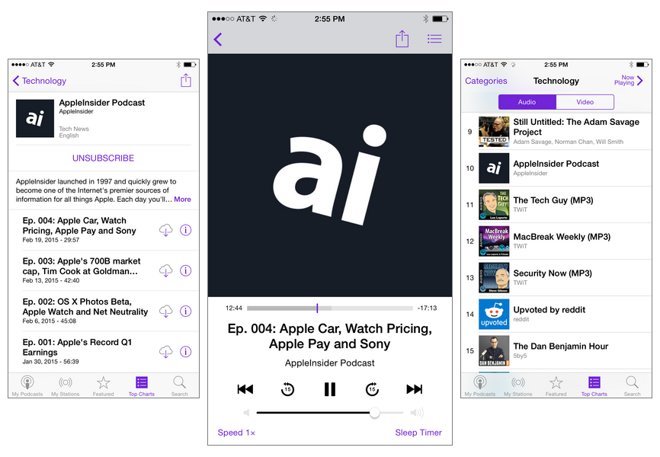The U.S. Patent and Trademark Office on Friday handed down a final decision invalidating key claims of a so-called "podcasting patent" assigned to Personal Audio, LLC, which was in the midst of leveraging the IP against multiple podcasters.
Today's Patent Trial and Appeal Board decision comes after the Electronic Frontier Foundation in 2013 petitioned for a review of Personal Audio's U.S. Patent No. 8,112,504 for a "System for disseminating media content representing episodes in a serialized sequence," which basically describes technology for generalized subscriber-based digital audio distribution.
Using its '504 patent, the non-practicing entity attempted to garnish licensing fees from big name podcasters, including CBS, NBC, Fox and comedian Adam Carolla. Personal Audio took Carolla to court, but ended up settling after being faced with the threat of a protracted legal battle with little upside.
"We're grateful for all the support of our challenge to this patent. Today is a big victory for the podcasting community" said EFF attorney Daniel Nazer. "We're glad the Patent Office recognized what we all knew: 'podcasting' had been around for many years and this company does not own it."
Personal Audio successfully leveraged against Apple two similar patents covering media distribution against Apple in 2009, ultimately winning $8 million in damages. That suit targeted Apple's implementation of iPod playlists, however, and did not involve podcasting technology.
Podcasting, which takes its name from Apple's iPod, first gained popularity in the early 2000s as digital audio hardware proliferated. The medium has since spawned a small cottage industry, enabling successful podcasters to generate money to offset overhead and turn a profit through in show advertising or sponsorship.
Apple released its own standalone Podcasts app with iOS 8 and preinstalls the software on all new devices. The move, along with popular podcasts like "Serial," spurred a resurgence in podcast listening over the past year.
 Mikey Campbell
Mikey Campbell








 Charles Martin
Charles Martin
 Malcolm Owen
Malcolm Owen
 William Gallagher
William Gallagher

 Christine McKee
Christine McKee
 Wesley Hilliard
Wesley Hilliard

 Andrew Orr
Andrew Orr








24 Comments
Crap! What does this say for my as yet un-patented method of noxious air pollution system by way of spicy 3 bean dip -n- nachos.
Corolla should get his settlement money back.
Finally, a troll gets his cummuppance.
"Kneecaps" I like that word.
verb (kneecaps, kneecapping, kneecapped) [ with obj. ] s Shoot (someone) in the knee or leg as a form of punishment: (as noun kneecapping) : petty crimes are punished by kneecapping.
Yes. Break the SOB's legs so they have nothing to stand on. LOL.
If the courts did that literally, there would be no more patent trolls.
Corolla should get his settlement money back.
Agreed, as should all the other podcasters who settled with this leech of a company. Or they should be allowed to sue them for it. Litigation without a revenue stream might be even more costly in the long run.